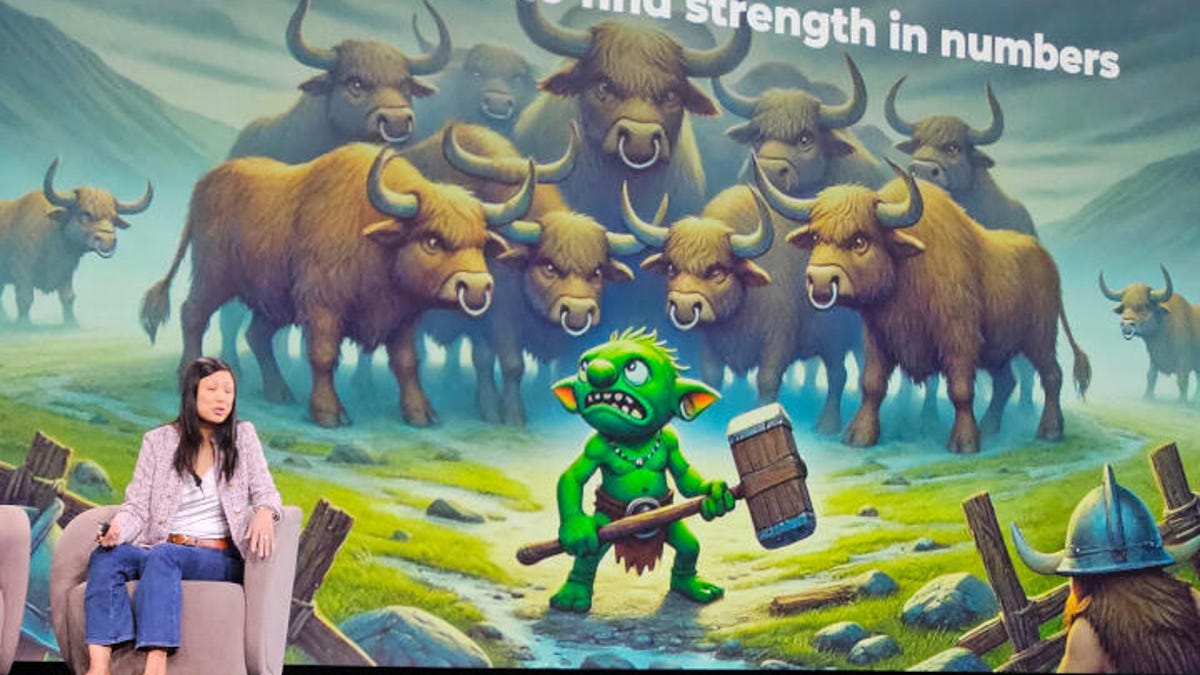- 88 Posts
- 305 Comments

 10·2 days ago
10·2 days agoIt’s re-posted from a news community, where it was since removed for not being from an acceptable news site. Unfortunately, the acceptable news sites covered this more than 30 days ago, which disqualifies their articles regardless of whether they were ever posted to the community. shrug
I couldn’t find a better article in the time I had to spare, so I re-posted this one. I think what’s important in this case is just that word gets out. I don’t see anything misleading about this one, and the EFF link (which is also not exactly a news site) is plainly visible.

 1·8 days ago
1·8 days agoMy condolences. Unfortunately, people are sometimes designated the in-house expert on a thing just because they seem slightly less ignorant of it than anyone else in the organization. That leaves more than a few people making decisions that impact security and privacy without good understanding or sound judgment in those areas.
Maybe you should train up and become your state’s new security expert?

 0·8 days ago
0·8 days agomusic group IFPI complained that while Cloudflare discloses the hosting locations of pirate sites in response to abuse reports, it doesn’t voluntarily share the identity of these pirate customers with rightsholders.
“Where IFPI needs to obtain the customer’s contact information, Cloudflare will only disclose these details following a subpoena or court order – i.e. these disclosures are mandated by law and are not an example of the service’s goodwill or a policy or measures intended to assist IP rights holders,” IFPI wrote.
So the corporations enjoying enormous profits from other people’s work are unhappy that Cloudflare doesn’t make it easy for them to circumvent due process. What a surprise.
(I’m generally not a fan of Cloudflare, because its man-in-the-middle position between users and services has grown to an unhealthy scale, making it ripe for dragnet surveillance and other abuses. But it would be even worse if it was actively helping these greedy, predatory corporations dodge the law.)

 7·10 days ago
7·10 days agoThis is one of the more important reasons to minimize dependencies and be very picky about the ones we adopt.

 0·12 days ago
0·12 days agoWhen I’m driving, it’s actually unsafe for my car to be operated in that way. It’s hard to generalize and say, buttons are always easy and good, and touchscreens are difficult and bad, or vice versa. Buttons tend to offer you a really limited range of possibilities in terms of what you can do. Maybe that simplicity of limiting our field of choices offers more safety in certain situations.
Or maybe being able to consistently and reliably operate the thing without taking your eyes off the road has something to do with it? Hmm… Yes, this is really hard to generalize.
A quick search for the mentioned product names found their safety data sheets:
https://www.crcindustries.com/media/msdsen/msds_en-1003333.pdf
Chemical name Common name and synonyms CAS number % 1,1,1,2-tetrafluoroethane HFC-134A 811-97-2 45 - 55 1,1,2,2-tetrafluoro-1-(2,2,2-trifluoroethoxy) ethane HFE-347PCF2 406-78-0 45 - 55 https://www.tmkpackers.co.nz/wp-content/uploads/FUELITE-TMK-SDS-ISSUE-6.pdf
Chemical Ingredient CAS No. Proportion (% ) Heptane and isomers mixture 35 - 55 Cyclohexane 110-82-7 25 – 35 Methylcyclohexane 108-87-2 < 15 Hexane 110-54-3 <10
This comment from PaulG.x caught my eye:
Electronics technician with 48 years in the industry here.
The common cause of the buttons losing sensitivity is that the silicone absorbs skin oils and these oils act as insulation on the pads and tracks.
If you look at the tracks under the pads that are least sensitive , you will see the oily residue. You can clean the tracks and pads with alcohol for a short term fix but the pads will exude more of the oil that is within the silicone.
A longer term fix is to soak the whole key pad sheet in Fuelite (Petroleum Spirit) Fuelite is the main ingredient in CRC Contact Cleaner (in fact it is the only ingredient). Use liquid Fuelite to do this , not Contact Cleaner because you have to immerse the silicone sheet.
Soak the sheet for 5 minutes , it will swell a little , let it dry thoroughly and it will return to normal dimension.
While the silicone has still some absorbed Fuelite in it , it will be easily torn so treat it carefully.
Then reassemble the device.
This fix should last several months depending on the state of the silicone sheet

 19·14 days ago
19·14 days agoDon’t assume too much from the headline, folks. They’re not saying everything has to be rewritten by 2026. They’re saying new product lines serving critical infrastructure should be written in memory-safe languages, and existing ones should have a memory safety roadmap.
If you’re about to post about how you think that’s unreasonable, I think you should explain why.

 0·14 days ago
0·14 days agoIt’s one thing to make a reasonable assumption/prediction about how things probably are based on surrounding circumstances.
It’s quite another thing to have objective, quantifiable data showing how things actually are. Even better if it includes the fine details: the underlying reasons behind the scenes that might not be exactly what we expected.
Nobody finds a report like this surprising, but it is important nevertheless.

 6·14 days ago
6·14 days agoYou could always test the waters by writing up a few of your workarounds in Lemmy posts, and seeing how much interaction they draw. If they’re well-received, the effort of building and maintaining a blog might be worthwhile.
Could someone smarter than me explain Matrix to me?
I wouldn’t assume that I’m smarter, but I do have more than a little experience here, so I’ll try to answer your questions. :)
It’s a real-time messaging platform. The most common use for it is text chat, both in groups (like Discord or IRC) and person-to-person (like mobile phone text/SMS). It has other features as well, like voice chat, video conference, and screen sharing, although much of that is newer and only slowly showing up in clients.
What would be the utility for someone, who cares about privacy and currently uses Signal and email for communication?
Compared to Signal:
- Matrix doesn’t require a phone number, or even an email address (although some public homeservers want an email address these days, as a recovery method in case you forget your password).
- Matrix has a variety of clients, so finding an app that fits your needs is likely to be easier.
- Matrix clients typically don’t require Google services at all; neither to get the software nor to receive notifications.
- Matrix cannot be monitored at any single location, so it’s more resistant to meta-data tracking at the network level.
- Matrix cannot be shut down by any single organization, so it’s more resistant to censorship and denial-of-service attacks. If a homeserver is ever forced offline, only the accounts on that homeserver go away; all your other contacts remain intact.
- Matrix (last time I checked) had better support for using multiple devices on the same account. Phone, laptop, and office computer, for example.
- Matrix homeservers can be self-hosted by anyone, and still participate in the global network.
- Signal’s encryption covers more meta-data at the application level than Matrix currently does. This might be important if you’re a whistleblower or journalist whose safety depends on hiding your contacts from well-positioned adversaries.
Compared to email:
- Matrix has end-to-end encryption, with forward secrecy, built in. It’s generally better for privacy than bolting PGP onto email, and it’s far easier.
- Matrix is well suited to instant messaging.
- Matrix supports features that people have come to expect from modern chat platforms, like reaction emoji and message editing.
What advantage would it give me over other services?
We already covered Signal, and there are too many other services to compare every difference in all of them, but here are some common advantages:
- Matrix is a completely open protocol, developed through a public and open process, with open-source servers and client apps. This is important to people who care about privacy because it can be scrutinized by anyone to verify that it operates as it claims to, and can be improved by anyone with a good idea and motivation to participate. It’s important to people who care about longevity because nobody can take it away.
- Matrix has multiple clients for every major platform: desktop, mobile, and web.
- Matrix handles groups of practically any size (including just one or two people).
- Matrix messages can be delivered even when you’re offline.
Is Matrix anything good already, or is it something with potential that’s still fully in development?
Until recently: Ever since cross-signing and encryption-by-default arrived a couple years ago, it has been somewhere between “still rough” and “pretty good”, depending on one’s needs and habits. I have been using it with friends and small groups for about five years, and although encrypted chats have sometimes been temperamental, they have worked pretty well most of the time. When frustrating glitches have turned up, we sorted them out and continued to use it. This has been worthwhile because Matrix offers a combination of features that is important to us and doesn’t exist anywhere else. I haven’t recommended it to extended family members yet, because not everyone cares as much about privacy or has the patience for troubleshooting in order to get it. However…
Recently: The frequency of glitches has dropped dramatically. Most of the encryption errors have disappeared, and the remaining ones look likely to be solved by the “Invisible Encryption” measures in Matrix 2.0. Likewise with things like and sign-in lag and client set-up.
If you’re considering whether it’s time to try it, I suggest waiting until Matrix 2.0 features are officially implemented in the clients and servers you want to use, which should be very soon for the official ones. I wouldn’t be surprised if I could confidently recommend it to family members in the coming year.
How tech savvy does one need to be to use Matrix?
If you just want to chat, not very. Even one or two of my friends who can barely use email got up and running pretty quickly with a little guidance. Someone who can get started using Lemmy by themselves can probably handle it on their own.
If you want to host your own server, moderately tech savvy.
Matrix Spec Change. It’s how the Matrix protocol evolves, similar to the RFCs (requests for comments) used by Internet Engineering Task Force protocols.
So you were aware that this announcement includes fixes for the encryption issues, yet you decided to post a comment complaining about them anyway, ignoring the point of this post and giving readers the false impression that the issues are unaddressed.
And you did it just to contradict someone who finds the project useful.
That’s not helpful to anyone. Quite the opposite, I’d say.
This is /c/technology, not /c/stocks.
Looks like someone didn’t read the article. See part 4: Invisible Encryption. (Also note the Conclusion paragraph that explains the new functionality is only just starting to appear in clients.)

 51·19 days ago
51·19 days agoYour account info says you joined Lemmy a couple of years ago. Could that have something to do with it? Could be that there are simply fewer of us here than wherever you were before.
Also, if Reddit is one of your haunts, keep in mind that a lot of communities there partially dispersed a little over a year ago, and not everyone has reappeared in the same place (or at all).

 10·21 days ago
10·21 days agoI don’t remember the artist’s name. I’m pretty sure the article was a text post, probably a blog. Not a youtube video.

 74·21 days ago
74·21 days agoSome years ago, an artist who was not a mega-star but was on all the major music services published an article detailing how well each one paid. I’m now kicking myself for not bookmarking it. I clearly remember Spotify being among the worst, if not the worst.
















You might start with the documents posted to the EFF site over the past year. For example, the September opposition letters include specific court decisions and put them in context, including commentary from law professors.
https://www.eff.org/search/site/pera